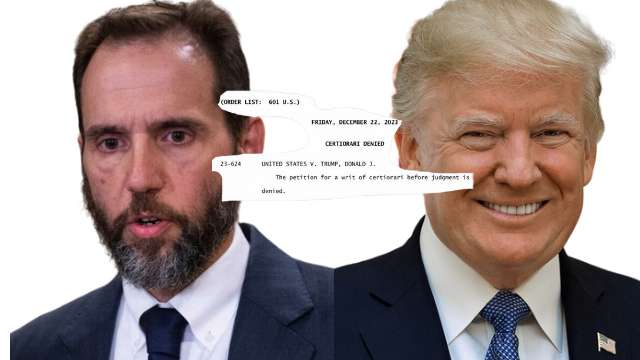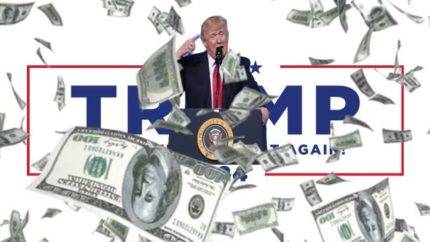A seismic revelation has rocked the political landscape as a newly released 156-page report by Democrats on the House Oversight Committee uncovers a labyrinthine network of financial transactions. Termed “White House for Sale,” the report lays bare a disturbing reality: during his presidency, Donald Trump’s businesses allegedly received a staggering $7.8 million from at least 20 foreign governments. Most notably, China emerges as the primary source, channeling a significant $5.5 million into Trump-owned enterprises. This alarming disclosure raises profound concerns over potential bribery and manipulation within the highest echelons of power.
Trump’s Foreign Influence and Brazen Transactions
The report exposes a glaring pattern where various foreign entities directly funneled substantial sums into Trump properties, presumably in a blatant attempt to wield influence within the White House. Shockingly, payments totaling $5.5 million poured in from China, contradicting Trump’s vocal stance against the nation.
The sources of these payments, including the Chinese Embassy, the Industrial and Commercial Bank of China, and the Hainan Airlines Holding Company, spotlight a brazen attempt at influencing U.S. policy through financial channels. Additionally, Saudi Arabia’s sizable contribution of $615,000 raises disturbing questions regarding Trump’s response to the Jamal Khashoggi murder, hinting at a potential nexus between financial transactions and policy decisions.
Specific Transactions and Dubious Silence
The funds weren’t directed randomly but were channeled into prominent Trump properties like the Trump International Hotel in Washington, D.C., Las Vegas’ Trump International Hotel, Trump Tower on Fifth Avenue, and the Trump World Tower at 845 United Nations Plaza in New York. Congressman Jamie Raskin’s scathing assessment emphasizes Trump’s prioritization of personal financial interests over the nation’s welfare, flagging an egregious violation of constitutional norms and the ethical fabric expected from a sitting president.

Implications and Limited Investigations
The report underscores the alarming possibility that these revelations might only scratch the surface of Trump’s purported corruption. Despite Democrats unearthing damning evidence within a confined investigative window, the abrupt halt to inquiries by Republicans, upon seizing House control, leaves critical questions unanswered. The report’s poignant assertion reveals a distressing nexus: foreign governments made payments to Trump-owned entities while concurrently advocating specific policy objectives to the Trump administration, amplifying concerns of undue influence and potential breaches of national interest.
The incendiary findings outlined in the “White House for Sale” report paint a distressing portrait of ethical transgressions and potential breaches of presidential conduct. With calls intensifying for comprehensive scrutiny and accountability, this report plunges Donald Trump into the center of what could become one of the most significant scandals in American political history. The demand for transparency, accountability, and an in-depth investigation into these alleged transactions is unequivocal, signaling profound implications for the integrity of the nation’s highest office.
Is a Family Tradition
In the past, there have been discussions regarding foreign bribery issues concerning other members of the family. For instance, Jared Kushner, the former White House adviser, recently stirred controversy with his remarks during an interview with Fox News’s Maria Bartiromo. Kushner asserted that, as an American Jew, he feels more secure in Saudi Arabia than on a U.S. college campus, singling out Columbia University. This statement has ignited a heated debate, touching on themes of patriotism, free speech, and concerns over personal security.

In the interview, Kushner highlighted his experience of speaking freely at a conference in Saudi Arabia. He expressed his ability to openly share his views and noted a palpable disdain among the Saudi people toward a recent terrorist attack attributed to Hamas. According to Kushner, Saudi Arabia strongly advocates for the elimination of Hamas by Israel and is generally opposed to terrorism in the region. His account of the atmosphere in Saudi Arabia has further fueled discussions on the dynamics of free expression and security concerns, particularly in comparison to the climate on U.S. college campuses.
The remarks made by Kushner have spurred a broader dialogue on the complexities surrounding the intersection of free speech, national allegiance, and perceptions of safety. The contrasting environments between a U.S. college campus and Saudi Arabia, as described by Kushner, have raised questions about the state of discourse and personal security within different geopolitical contexts.
Table of Contents
Discover more from OGM News NG
Subscribe to get the latest posts sent to your email.














